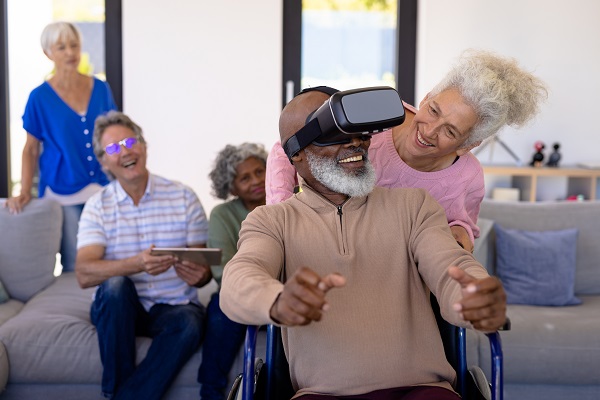
Introduction
Ever tried to find your keys in a messy house? Managing resident health records in a care home can feel just like that. But unlike a misplaced key, misplaced health records can lead to far more serious consequences. Efficient management of these records is crucial, not just for the residents’ well-being, but also for the sanity of care home operators. However, keeping track of all that paperwork (or digital files) is no small feat. Let’s dive into why this is important and how it can be done without pulling your hair out.
Importance of Efficient Health Record Management
Imagine trying to bake a cake without knowing the ingredients. Now imagine trying to provide quality care without accurate health records. The latter is even more disastrous. Accurate and up-to-date health records are the secret sauce for top-notch resident care. When these records are managed efficiently, communication and coordination among the staff improve dramatically. It’s like giving everyone in a relay race the same map—no one gets lost, and the handoffs are smooth.
Besides improving care, there are also legal and regulatory dragons to slay. Keeping thorough and organized health records isn’t just a good idea; it’s a requirement. Failing to maintain these records properly can lead to hefty fines or worse. So, it’s not just about making life easier; it’s about staying on the right side of the law.


Strategies for Efficient Health Record Management
1. Embrace Electronic Health Record (EHR) Systems
First things first, if you’re still using paper files, it’s time to step into the 21st century. Electronic Health Record (EHR) systems are a game changer. They make it easier to access, update, and share health records. Plus, you won’t have to worry about spilling coffee on them.
2. Standardize Documentation Practices
Think of standardized documentation like following a recipe. When everyone uses the same ingredients and steps, the outcome is predictable and reliable. Using templates for recording health information ensures that nothing important gets left out. It also makes it easier for new staff to get up to speed quickly.
3. Train, Train, and Train Again
Even the best systems won’t work if no one knows how to use them. Staff training and education are crucial. Regular training sessions can help ensure that everyone is on the same page and knows the latest best practices. Think of it as a refresher course for your brain—no one gets rusty, and everyone stays sharp.
4. Conduct Regular Audits and Quality Checks
Imagine your health records are like a garden. Regular audits and quality checks are the pruning and weeding that keep everything in order. These checks help identify any gaps or errors in the records and ensure they remain accurate and up-to-date. It’s a bit like having a spell checker for your documents—catches mistakes before they become problems.
Ensuring Privacy and Security of Health Records
Now, let’s talk about keeping these records safe. It’s one thing to manage them efficiently, but another to ensure their privacy and security.
1. Maintain Privacy and Confidentiality
Residents trust you with their most personal information, so maintaining privacy and confidentiality is non-negotiable. It’s like being given the secret recipe for a famous dish—you don’t want that falling into the wrong hands.
2. Secure Storage and Access Control
Make sure health records are stored securely and that access is controlled. This might mean using locked cabinets for physical records or secure passwords and user permissions for digital ones. Think of it as a VIP area—only those with the right credentials get in.
3. Use Data Encryption and Backup Systems
To protect against unauthorized access and data loss, use data encryption and regular backups. Encryption ensures that even if data is intercepted, it can’t be read without the proper key. Backups are your safety net—if something goes wrong, you can recover the data without missing a beat.

Conclusion
In summary, managing resident health records efficiently is like having a well-organized kitchen: it makes everything easier and more enjoyable. Accurate health records lead to better care, smoother operations, and compliance with legal requirements. By embracing EHR systems, standardizing documentation, training staff, and conducting regular audits, care home operators can keep everything running like a well-oiled machine. Remember, maintaining privacy and security is just as important—think of it as keeping your secret recipes safe.
So, care home operators, it’s time to roll up your sleeves and get your health record management in tip-top shape. Your residents, staff, and regulators will thank you. And who knows? You might even find your keys along the way.
FAQs: Managing Resident Health Records Efficiently
Why is efficient health record management important in a care home?
Efficient health record management is crucial because it ensures that residents receive the best possible care. Accurate and up-to-date health records allow care home staff to provide timely and appropriate treatments, improving the overall quality of care. Additionally, it helps in coordinating care among different staff members, reducing the chances of errors. Lastly, it ensures compliance with legal and regulatory requirements, avoiding potential fines and legal issues
What are the benefits of using Electronic Health Record (EHR) systems in care homes?
EHR systems offer numerous benefits, including:
Easy Access: Health records can be accessed quickly by authorized staff, ensuring timely care.
Improved Accuracy: Reduces errors associated with handwritten notes.
Efficient Updates: Makes it easy to update records in real-time, ensuring information is always current.
Better Coordination: Facilitates better communication among staff, leading to more coordinated care efforts.
Secure Storage: EHR systems often come with advanced security features to protect resident data.
How can care home operators ensure the privacy and security of resident health records?
To ensure privacy and security, care home operators should:
Use Secure Storage: Implement locked cabinets for physical records and secure digital systems for electronic records.
Control Access: Restrict access to health records to authorized personnel only, using passwords and user permissions.
Encrypt Data: Use data encryption to protect sensitive information from unauthorized access.
Regular Backups: Perform regular data backups to prevent data loss in case of technical failures.
Train Staff: Regularly train staff on privacy policies and security practices to maintain confidentiality.
What are some strategies for improving health record management in care homes?
To improve health record management, care home operators can:
Implement EHR Systems: Transition from paper to electronic records for better efficiency and accuracy.
Standardize Documentation: Use templates and standardized forms to ensure consistent and complete documentation.
Train Staff: Conduct regular training sessions to keep staff updated on best practices and new systems.
Conduct Audits: Perform regular audits and quality checks to identify and correct any discrepancies or errors in the records.
Maintain Compliance: Stay informed about legal and regulatory requirements to ensure records are kept according to the latest standards.
You may also like
- https://www.mychartspace.com/how-to-become-a-caregiver/
- https://www.mychartspace.com/health-and-safety-in-residential-care-homes/
- https://www.mychartspace.com/caregiver-burnout/
- https://www.mychartspace.com/digital-charting-for-caregivers/
- https://www.mychartspace.com/dealing-with-difficult-elderly-patients/
- https://www.mychartspace.com/how-to-manage-caregiver-stress/
- https://www.mychartspace.com/marketing-tips-for-residential-care-homes/


